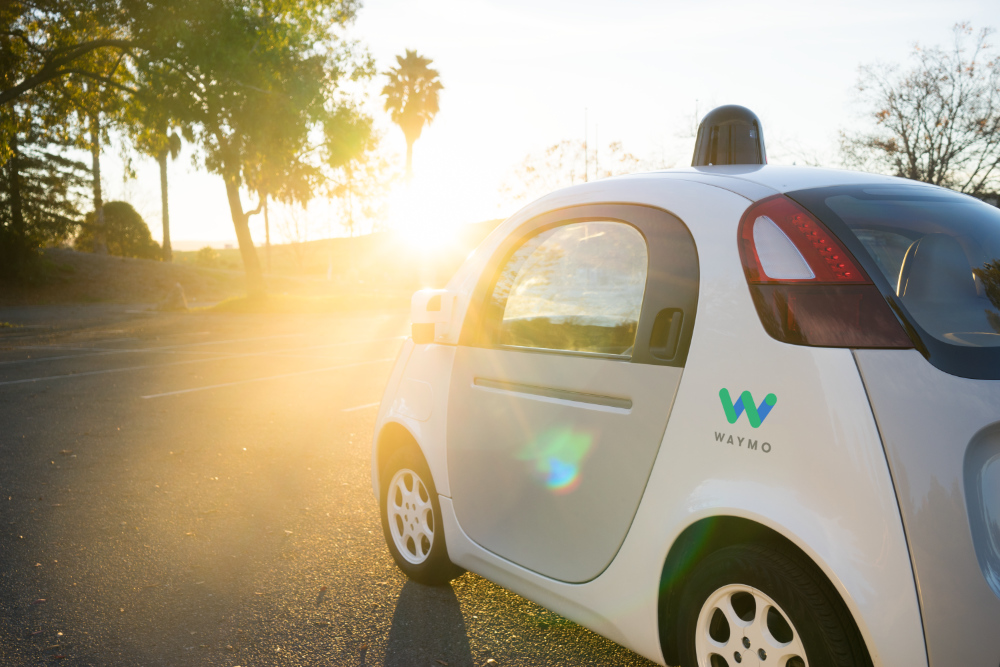
Robohub.org
Robocar news: Waymo starts pilot in Phoenix, Apple car gets more real, and the flying car takes off
Waymo (Google) has announced a pilot project in Phoenix offering a full ride service in their new minivans. Members of the public can sign up — the link is sure to be overwhelmed with applicants, but it has videos and more details — and some families are already participating. There’s also a Waymo Blog post. I was in Phoenix this morning as it turns out, but to tell real estate developers about robocars; not for this.
There are several things notable about Waymo’s pilot:
- They are attempting to cover a large area — they claim twice the size of San Francisco or 90 square miles. That’s a lot. It’s enough to cover the vast majority of trips for some pilot users. In other words, this is the first pilot which can test what it’s like to offer a “car replacement.”
- They are pushing at families, which means children, including those not of driving age. The mother in the video expects to use it to send some children to activities. While I am sure there will be safety drivers watching over things, trusting children to the vehicles is a big milestone. Google’s safety record, with safety drivers, suggests this is actually a very safe choice for the parents, but there is emotion over trusting children to robots (other than the ones that go up and down shafts in buildings.)
- In the videos, they are acting like there are no safety drivers but there surely are, for legal reasons as well as safety.
- They are using the Pacifia minivans. The Firefly bubble cars are too slow for anything but neighbourhood operation. The minivans feature motorized doors, a feature that, although minor and commonplace, meets the image of what you want from a self-driving car.
Apple is in the game
There has been speculation recently because of some departures from Apple’s car team that they had given up. In fact, last week they applied for self-driving car test plates for California. I never thought they had left the game.
The big step is that once they test in California on public streets they will lose a lot of their stealth. Too many people in California (especially around Apple) know what to look for and we’ll see photos of these cars in the wild before too long. Which is good. I have never understood Apple’s deep culture of secrecy.
Waymo has reportedly bought a large test track in Nevada to expand their testing. Others are announcing pilot projects including Baidu, fitting surprisingly well with the schedule I have been telling people for the last few years. Namely that by late 2010 — pilots, until tech, regulatory and business kinks are worked out. Then by 2020 — first commercial deployments of taxi services. Mid-2020 — land rush as companies with working products rush to be the first to conquer individual city markets.
Uber/Waymo suit heats up
The Uber/Waymo lawsuit has become a soap opera. Because I have friends on both sides of the fight, I have not been commenting. Recent efforts include an attempt by Waymo to entirely shut down the Uber/Otto project or to force Anthony Levandowski to leave. This would be bad for Uber, especially the full shutdown, but as I wrote earlier Uber has a special advantage. Even if their project is shut down, they still have the number 1 brand and position for selling rides. Uber doesn’t own or control their cars now. If they have to buy somebody else’s robocars it is not nearly as strong a position as they might like, but it is not a failure.
Flying cars take off
I have been writing recently more about flying cars. Yesterday, my friends Larry Page and Sebastian Thrun revealed Kitty Hawk — a prototype flying car. You can see the cool video of it:
This is yet another piece of evidence that making a personal flying drone is certainly doable and going to happen. I even think the air traffic control problems can be solved. Four big questions remain:
- How will we get enough energy in the vehicle to get a decent range? Not with today’s lithium-ion.
- How will we get it quiet enough that you will tolerate regular takeoff and landing near you? (I am quoted in the NYT article on Kitty Hawk on this point.)
- How will we get it energy efficient enough to not make our transportation less sustainable? Not with pure multirotors, though perhaps with ones that convert to fixed-wing flight. Or perhaps with electricity that’s so clean, we don’t care.
- Will we tolerate skies packed full of (possibly noisy) flying drones?
Tesla settles suit
Telsa had been suing the startup founded by Stirling Anderson, who had been key in their autopilot project, and Chris Urmson, who for most of its existence ran Google’s project (and who I worked for while there.) The two are a powerhouse so their startup will be one to watch and the settlement will clear funding hurdles for them, even if it ended up being costly — but we don’t know many details.
tags: Apple, Automotive, Autonomous Cars, autonomous vehicles, robocars, robot cars, Tesla, Waymo





